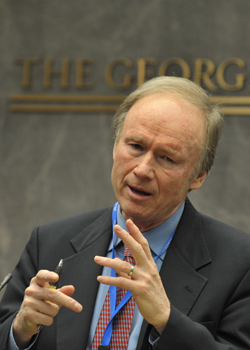Professor Chris Seaman has published a new article to SSRN, Willful Patent Infringement and Enhanced Damages After In re Seagate: An Empirical Study. Here's the abstract:
Willful patent infringement is a critical issue in patent litigation, as it can result in an award of up to treble (enhanced) damages. In a 2007 decision, In re Seagate, 497 F.3d 1360 (en banc), the Federal Circuit significantly altered the standard governing willful infringement by requiring the patentee to prove at least "objective recklessness" by the accused infringer. Many observers predicted that this heightened standard would result in far fewer willfulness findings and enhanced damage awards. To date, however, there has been no comprehensive empirical study of Seagate's actual impact in patent litigation.
This paper fills that gap by analyzing six years of decisions in the district courts – three years before and after Seagate – on willful patent infringement and enhanced damages. Surprisingly, it finds that willful infringement was found only about 10% less often after Seagate. In addition, after Seagate, juries find willful infringement substantially more often than judges do at trial. However, enhanced damages are awarded less frequently and in lower amounts when juries find willfulness compared to judges.
Finally, this paper evaluates the impact of several common factors on willful infringement decisions after Seagate. Based on the empirical data collected in this study, the existence of a "substantial" or "legitimate" defense to infringement is the strongest predictor of a finding of no willfulness after Seagate, while evidence of copying by the accused infringer was the strongest predictor of willfulness. In contrast, the remaining factors studied – opinions of counsel, attempts to design around the patent, reexamination at the PTO, and bifurcation of willfulness from liability at trial – had no statistically significant effect on willfulness decisions.
Read the full article here.



Jared
Seems to me that companies are pushing harder than before to compete with competitors without doing the actual work of inventing new things rather just building on the work
of others I think as this trend continues so will the cases of patent litigation increase. For more info on the subject. http://businesses.generalpatent.com/